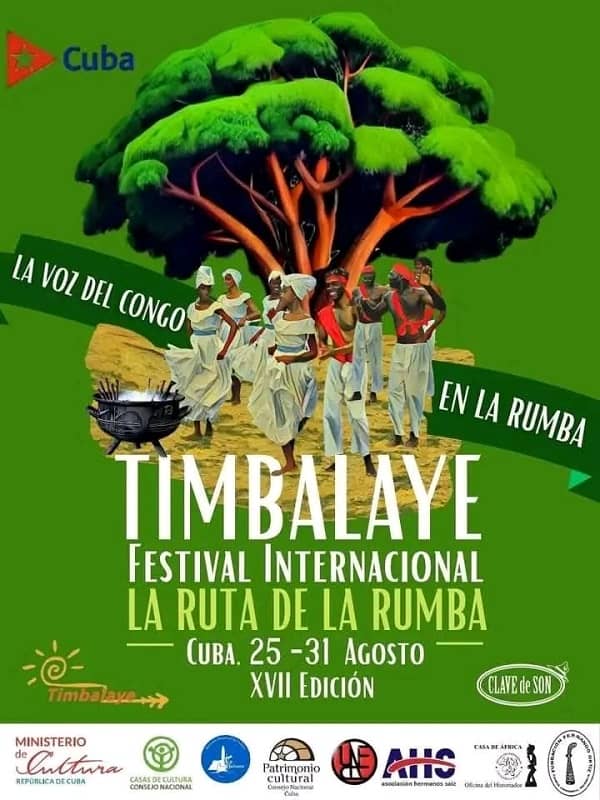The 17th edition of the International Festival La Ruta de la Rumba is an event organized by the Timbalaye project, an International Promoter of the Cuban Culture, and it is held every year in Havana.
The event is designed to highlight the importance of singing in the preservation and transmission of African heritage in Cuba, the Caribbean and Latin America.
This time Timbalaye is aimed at highlighting the relevance of African heritage, especially the Congolese heritage in Rumba genre as well as the tangible and intangible heritage throughout the country.
Taking as its basis Rumba, a Cuban genre recognized since 2016 as Intangible Cultural Heritage of Humanity, the event serves to highlight the importance of the songs, dances and drums of the Congos in the Cuban Rumba and its influence on the cultural identity of the nation.
In an effort to engage with communities and audiences from various regions of the country, the 2025 edition of La Ruta de la Rumba also reaches other provinces where local cultural expressions, community projects, and groups that carry them out have prominence.
Rumba is a musical and dance genre that emerged in the ports and poor neighborhoods of Havana and Matanzas at the end of the 19th century, after the abolition of slavery.
Throughout its development and evolution, rumba shows the complexity and richness of Cuba's cultural identity, being the most genuine expression of the Cuban popular music.
Timbalaye is an African word that translates to the phrase "...with firmness and security on earth," which gives meaning to this Cuban cultural project, and which has contributed to the safeguarding and preservation of Rumba and other elements of Cuban popular and traditional culture.
Something new this time is planting siguarayas, an emblematic tree related to the magical-religious issue that encompasses Cuban cultural expressions of African origin, and that it is a symbol of energy, life and protection.
On the other part, the event organizers aim to raise awareness about the importance of caring for the environment from a cultural and community perspective.
The 17th edition of the International Festival La Ruta de la Rumba is an event organized by the Timbalaye project, an International Promoter of the Cuban Culture, and it is held every year in Havana.
The event is designed to highlight the importance of singing in the preservation and transmission of African heritage in Cuba, the Caribbean and Latin America.
This time Timbalaye is aimed at highlighting the relevance of African heritage, especially the Congolese heritage in Rumba genre as well as the tangible and intangible heritage throughout the country.
Taking as its basis Rumba, a Cuban genre recognized since 2016 as Intangible Cultural Heritage of Humanity, the event serves to highlight the importance of the songs, dances and drums of the Congos in the Cuban Rumba and its influence on the cultural identity of the nation.
In an effort to engage with communities and audiences from various regions of the country, the 2025 edition of La Ruta de la Rumba also reaches other provinces where local cultural expressions, community projects, and groups that carry them out have prominence.
Rumba is a musical and dance genre that emerged in the ports and poor neighborhoods of Havana and Matanzas at the end of the 19th century, after the abolition of slavery.
Throughout its development and evolution, rumba shows the complexity and richness of Cuba's cultural identity, being the most genuine expression of the Cuban popular music.
Timbalaye is an African word that translates to the phrase "...with firmness and security on earth," which gives meaning to this Cuban cultural project, and which has contributed to the safeguarding and preservation of Rumba and other elements of Cuban popular and traditional culture.
Something new this time is planting siguarayas, an emblematic tree related to the magical-religious issue that encompasses Cuban cultural expressions of African origin, and that it is a symbol of energy, life and protection.
On the other part, the event organizers aim to raise awareness about the importance of caring for the environment from a cultural and community perspective.


Deje un comentario